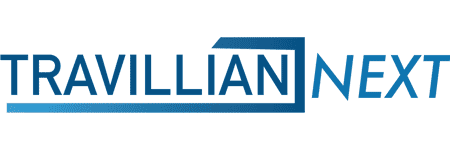Are you ready to take your risk governance to the next level? Our latest, must-read article is the second edition of Travillian Next’s Bank Board Insights Series, which explores the critical role of effective risk oversight in community banks. For any board looking to navigate the challenges of today’s rapidly changing world, this article offers valuable recommendations and strategies for enhancing risk management capabilities. Don’t miss out on the opportunity to elevate your risk governance and protect your bank’s future success. Read on for invaluable insights and expert advice.
Reflection of Risk Oversight
The world of banking is constantly evolving, and recent failures have brought into sharp focus the importance of strong risk governance. As businesses navigate periods of shock and increasing complexity, the role of boards in overseeing risk management has never been more critical. To effectively evaluate and support management with authority and credibility, boards must possess a balanced mix of skills and relevant industry experience.
Risks Hidden in Plain Sight
One of the key challenges facing boards is identifying high impact, low probability events or risks in the system. Michele Wucker, a strategic advisor and best-selling author of The Gray Rhino: How to Recognize and Act on the Obvious Dangers We Ignore and the recent sequel You Are What You Risk: The New Art and Science of Navigating an Uncertain World uses the Gray Rhino metaphor to describe the big dangers and risks that are coming at us and giving us a choice as to what to do. “It is identifiable, obvious, probable, dynamic, we can’t stand still and ignore it” she says. Recognizing and responding to these huge risks is crucial. In the case of SVB, the idiosyncratic high-risk profile was hidden in plain sight. SVB’s collapse driven by a lack of prudent risk governance, resonates with Warren Buffet’s famous quote: “It’s only when the tide goes out that you discover who’s been swimming naked.” Robust scenario planning that considers multiple eventualities and dives deep into outlier scenarios can also push thinking and prepare the organization for unexpected events.
Strategic Board Building: Achieving Optimal Balance of Competencies and Experience
The current crisis has brought to light the vulnerability of effective risk governance. Upon closer examination, it is evident that the composition of risk committees and boards has structural weaknesses that make it challenging to make tough decisions in a volatile environment. Effective risk governance requires a balanced and diverse group of individuals with the skills and expertise necessary to navigate a constantly changing landscape. By prioritizing the inclusion of independent directors with risk management and banking industry experience, boards can help ensure that they are well-prepared to meet the challenges of the future. It’s time to act and address the structural weaknesses in risk governance. By working together to bring in the right people and expertise, we can ensure that you’re well-prepared to make the tough decisions necessary in today’s rapidly changing world.
Psychological and Behavioral Biases Affect Decision-Making Process
Even the most well-run community banks can be susceptible to structural weaknesses and biases in decision-making processes. These biases include psychological tendencies like conservatism, social proof, confirmation, and illusion of control, which can impede effective decision-making processes and even disrupt established models.
To mitigate these biases, boards must be aware of their existence and identify blind spots. For example, conservatism bias can lead to underreacting to new information and difficulty in processing it, while confirmation bias can lead to focusing on positive information and a false belief in the ability to control outcomes. Social proof bias can also lead to excessive risk-taking and groupthink.
Effective Mitigation Strategies to Overcome Bias
Mitigation strategies for these biases include collecting individual views before meetings, having a diverse committee composition with different skills and expertise, and challenging the opinions of others. One member of the group should play the role of devil’s advocate to improve decision-making, and bringing in experts to board discussions can provide external perspectives and prompt critical thinking.
Navigating the New Normal: Adapting Crisis Communication Strategies for the Digital Age
It is crucial to effectively manage reputational risk during a banking crisis. Boards should also be proactive in crisis management, with a solid crisis communication plan that addresses both internal and external stakeholders.
In conclusion, effective risk governance is essential for the success of any banking organization. A well-rounded team of independent board members, possessing relevant skills and expertise, plays a crucial role in overseeing risk. By being aware of cognitive biases and adopting best practices, boards can mitigate risks, make better decisions, and ensure the resilience of the organization.
Key Takeaways to Strengthen Board Risk Governance
Review and assess the composition of risk committees and boards to ensure that they are properly structured and equipped to make informed decisions during times of volatility. Do you have the right mix of independent board of directors with risk management skills and banking industry expertise that can constructively challenge management and hold accountable?
Structural weaknesses and biases in decision-making processes can affect even the most well-run community banks. Do you have knowledge of cognitive biases that may impact your decision-making abilities as a committee or board, as well as strategies to mitigate them and make sound decisions?
Managing reputational risk during a crisis is crucial and can be achieved through the implementation of an effective crisis communication plan. Is your crisis communications plan robust and adaptable, addressing the concerns of both internal and external stakeholders?
Interested in learning more about our Bank Board Insights Series? Click here to catch up on Part I.
Travillian’s Banking and FinTech Practice provides Search and Talent Advisory services to depository institutions across the country. Established in 1998, the firm has built a unique platform that touches every corner of the industry. To learn more, click here, or get in touch below!
|
Indra Elangovan, Head of Strategic Advisory
(443) 844-2798 | ielangovan@travillaingroup.com |






